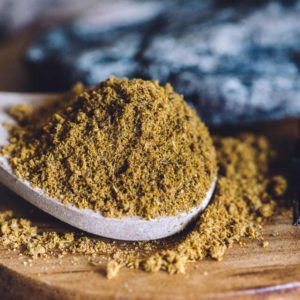Due to its high nutritional, dietary and healing properties, fennel has always received special attention from cooks and adherents of folk medicine.
Fennel oil is used in perfumery, cosmetology, soap making, liquor and vodka production.
🌿 The ancient Greeks and Romans believed that the aroma of fennel gives a person strength and drives away evil spirits.
🌿 In the 16th century, the Puritans called fennel “meeting seeds” because of their love of chewing fennel seeds during their meetings and prayers.
🌿 Even small restaurants in India often serve plain or sugared fennel and cardamom seeds after dinner, as a dessert to improve digestion or as a breath freshener.
Preparing such a mixture is very simple: mix fennel seeds and/or ground cardamom with a small amount of sugar or honey. And use half or a quarter of a teaspoon after meals.
Fennel seeds have a sweet-spicy taste, a pleasant smell that combines the aroma of dill and anise.
Use of fennel seeds in cooking
Stems, leaves, seeds, flowers and roots of this plant are used in cooking. They add a special taste and aroma to dishes, contribute to better digestion of food and enrich the body with vitamins and useful substances.
- Gives a special aroma to sauerkraut, canned vegetables
- Use the seeds when baking bread and confectionery: cookies, pies and puddings. Buns and cookies are sometimes sprinkled with fennel seeds
- Fennel comes in handy for the production of liqueurs, making compotes, and flavoring tea.
The use of fennel in Ayurvedic and traditional medicine
Fennel seeds contain a significant amount (up to 18%) of fatty oils, which include unsaturated fatty acids (including linoleic, oleic, palmitic and petroselic) necessary for normal human activity. Fennel essential oil consists (70%) of anethole. It also contains fennel with a characteristic aroma of basil, estragole, terpene substances, anisic acid.
Part used: leaves, seeds, roots
Energy: balances vata and pitta, reduces kapha dosha. VP + K
Action: tonic, diuretic, analgesic, expectorant, stimulant, antiseptic, antibacterial, antiviral, choleretic, antispasmodic
Our first acquaintance with the healing effect of fennel occurs in the first months of life. The well-known Dill Water, which is traditionally used by parents to eliminate digestive problems and flatulence in babies, contains fennel essential oil, which has an antispasmodic and calming effect.
- Fennel is included in many anti-cough mixtures and syrups.
- Both grass and fennel seeds are used as a component of herbal preparations intended for the treatment of bronchitis, pneumonia, cystitis, hypertension, angina pectoris, vegetative-vascular dystonia, gout, urolithiasis, hepatitis, etc.
- It affects the digestive, nervous, and genitourinary systems.
- Nourishes plasma, blood, muscles, bone marrow.
- Increases the secretion of enzymes that stimulate digestion, if chewed after a meal.
A simple recipe for tea with fennel to reduce appetite, speed up metabolism and get rid of excess weight: add a few drops of lemon juice to a cooled decoction of equal parts of chamomile, corn kernels, green tea and dry green fennel, mixed with twice the amount of its seeds and a little honey Take half a glass half an hour before meals three times a day. This infusion will help reduce appetite and remove excess fluid from the body.









Відгуки
Відгуків немає, поки що.